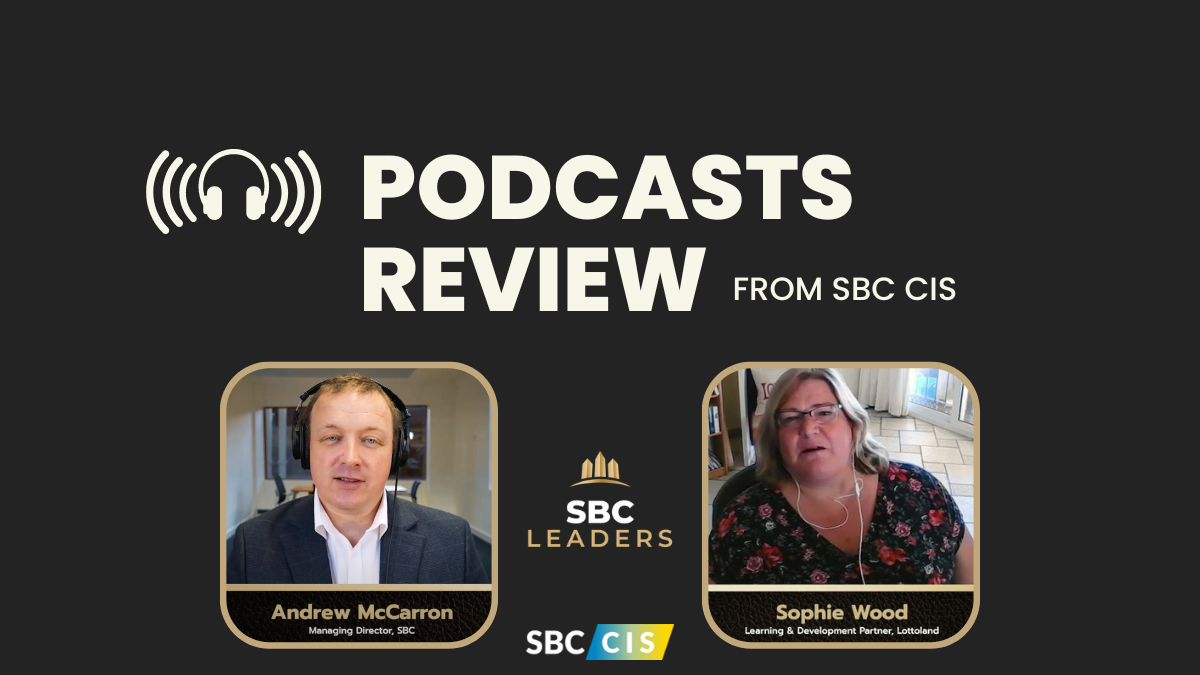Sophie Wood started her career at entry level with Gala Bingo and used her experience from her time at West Mercia Police to work her way into a more senior role at Lottoland.
Now she is Learning and Development partner at Lottoland and speaks with Andrew McCarron for the SBC Leaders Podcast about the importance of diversity, a new generation of employees, and how the metaverse can change the organizational culture.
Speaking in more detail about his role in the company, Sophie noted that her responsibilities include management leadership, personal growth, operational, and compliance training. Moreover, she co-leads diverse inclusion, and looks after the well-being, mental health support of those who are working with customers for a safer gambling perspective.
One of the first things Sophie did when started working in Lottoland was an in-depth survey of everybody working in the company, asking them what diversity inclusion meant to them, and what kind of priorities they had around that area.
“The really pleasant thing for me was finding out how important people’s nationality and culture are to them. And certainly with regards to them bringing their authentic selves into the workplace and kind of and quite often not speaking English as a first language and people throughout their industry experience had kind of not felt included because they didn’t come from UK-centric cultural background,” she recalled.
According to the survey, Lottoland has 35 different nationalities, which makes nationality and cultural heritage a real kind of the focal point of the company’s DNA strategy.
Sophie explained that diversity inclusion affects the entire industry as well as a new generation of employees: “I think if people haven’t already woken up to having a real values-driven expression of their culture then they will be forced in the years to come around that…
“Now it seems that it’s more of a case of applicants for roles actually betting on the companies rather than the other way around”.
The first factor for that is that Gen Z is very kind of values-driven. Every corporate social responsibility, ESG, diversity inclusion – all of those activities matter to that younger generation and they will really kind of pick and choose who they apply to according to whether those companies meet their value set.
Sophie continued: “Younger generations have a more open mindset around things like diversity and inclusion as well; they’re more accepting of people who are different from them because they’ve grown up in the internet age. Having people who look different, and come from a different lived experience doesn’t hold any kind of fear and there’s less ignorance”.
The other factor for the new organizational culture is the lockdown. The series of lockdowns that happened due to COVED really forced people to re-evaluate their lives and particularly their working lives in relation to their home life as well.
“All of a sudden people realized how much money they spend on the commute not just in monetary terms but in time terms as well and actually were forced into a situation where they felt those benefits on their home life, their family life.
“So now companies are to meet those value sets and to offer that kind of flexibility of working if they’re going to attract and retain the best talent.”
Talking about her role in the company and new ethics, Sophie pointed out that metaverse could become a good practice in diversity inclusion learning development.
For example, while onboarding into the organization people are able to meet their virtual colleagues before they actually start in the real world. Moreover, the metaverse literally could put people in the place of somebody to experience what being discriminated against is like.
“People who were born in the late 1990s and in the 2000s they’ve never experienced life without the internet, so [the metaverse] is normal practice for them”.
Don’t forget to subscribe to our Telegram-channel!

